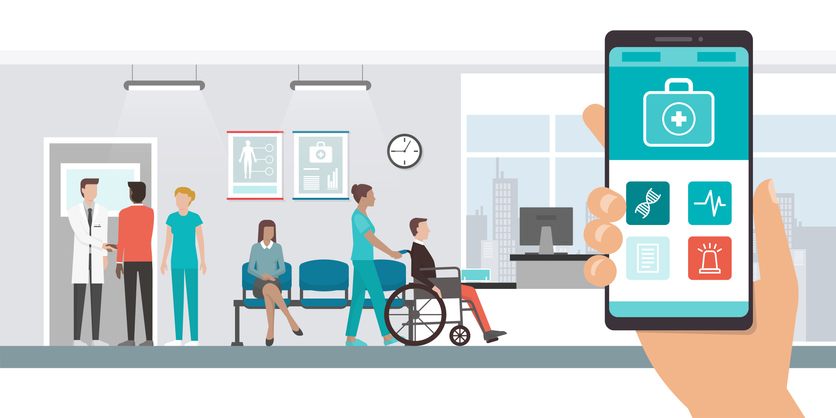CLEVELAND, Ohio — Cleveland Clinic’s emerging business department will turn its attention to proliferating Clinic “culture” and at least two distance-health initiatives, its new leader said.
“I’m sort of a physician who is part of the Clinic culture, has an understanding this is a physician-led organization and will work with the different institutes and our physician leadership: that’s our product,” said Dr. Michael Modic, who earlier this month was named chief emerging business officer (he’ll continue to lead the system’s Neurological Institute).
Emerging business hopes to develop a fourth pillar of revenue at Cleveland Clinic alongside research, philanthropy and clinical care dollars. Emerging business revenue comes from products and services the Clinic may have already created as part of its other functions, but never — until organizing emerging business in July 2007 — developed them as another revenue stream.

With the Rise of AI, What IP Disputes in Healthcare Are Likely to Emerge?
Munck Wilson Mandala Partner Greg Howison shared his perspective on some of the legal ramifications around AI, IP, connected devices and the data they generate, in response to emailed questions.
To further that goal, emerging business spent a large part of its time on management and consulting work in the United Arab Emirates, Modic said. That business has matured beyond “emerging” and has been transferred out and will be handled by a separate Clinic department.
Now, attention will turn to other initiatives, including consideration of an eICU service in which Clinic physicians provide additional guidance to intensive care units at other hospitals. Also under consideration is a similar telemedicine effort around home health care.
Modic said the Clinic is in the “post-vetting and pre-implementation phase” with these opportunities.
“At some level home health care is enabling patients to take care of themselves, and it’s been relatively straight forward: blood pressure, glucose monitoring, etc.,” Modic said. But as more home health care tests and products become more complex, Clinic physicians could help lend expertise and guidance, he said.
The Clinic would be entering existing markets in both cases, though home health care is a more nascent one. A 2008 report said about 17 percent of home health agencies use telemedicine, but about one-third of the agencies without a system planned to purchase one sometime in the next two years.
In the case of eICUs, there are several private competitors already in the market. Visicu in Baltimore says 200 hospitals and 40 health systems in 28 states use its program — about 10 percent of all adult ICU patients. Other providers include St. Louis-based Advanced ICU.
Modic has dipped his toe in the business side of the Clinic already, working on eRadiology intiatives as well as what he called “the startup in Las Vegas:” the Lou Ruvo Center for Brain Health. Modic took over emerging business after the departure of David Strand, who left the Clinic with his wife, Dr. Bridget Duffy, in late June. Strand was the Clinic’s chief operating officer who started the emerging business segment.
Modic said he also expects to work on a service for other hospitals to install the Clinic “culture” in which, for example, physicians collaborate across disciplines and leverage electronic medical records to track patient outcomes. Clinic staff would work to create the structure and management at client hospitals, but the health system has no plans for long-term consulting services.
“Consulting suggests something on ground,” Modic said. “At the current time, it doesn’t make a lot of sense having Cleveland Clinic physicians managing businesses. Past implementing systems and processes, we’re leery of that.”














